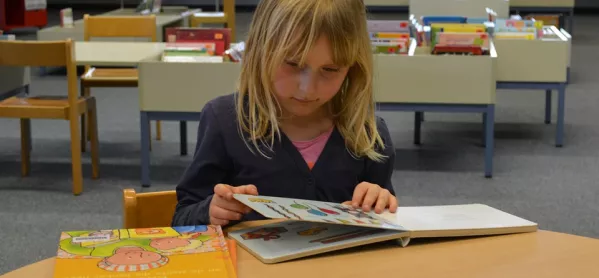This year, World Book Day divided opinions. While some teachers joyfully donned their costume, others sought alternative ways to celebrate that were more about the books themselves.
I think that World Book Day is a wonderful opportunity to focus on the importance of reading in schools. But to have a truly meaningful impact on developing children as readers, we need to tirelessly maintain our energy around reading all day, every day, every week and every term.
Equally, we need to consider why this is important. The Education Endowment Foundation (EEF) guidance report for improving literacy at key stage 1 explains this clearly, emphasising that “both [the teaching of] decoding and comprehension are necessary, but not sufficient, to develop confident and competent readers. It is also important to remember that progress in literacy requires motivation and engagement, both of which help children to develop persistence and resilience as well as enjoyment and satisfaction in their reading”.
So how can we develop motivation and engagement in reading for children? Well, here are three easy strategies (with reliable evidence of impact) that can be developed within schools, starting tomorrow.
1. Peer reading
The EEF Toolkit highlights how effective peer-tutoring can be and this is a relatively cost-effective way of building a culture where everyone reads. With a little structured training, older children can become perfect reading partners for younger children. Providing question prompts and a structure for each session helps, too.
2. Regular ‘read-alouds’
With the pressures in schools to cram everything in, it can be tempting to neglect one of the most powerful ways of highlighting the value we place on reading: by actually reading. By encouraging regular “read-alouds”, we give permission to teachers to spend time reading aloud to their classes, modelling the thinking processes that good readers use, and providing meaningful opportunities for children to respond to texts. In the lower key stages, reading aloud can be used really effectively to ensure all children understand the basic concepts about print - such as the difference between a letter and a word and how different texts are presented. At all stages, read-alouds provide the perfect chance to explore vocabulary in context, consider language choices and develop comprehension skills. They also allow us to share the opportunities texts give us to learn new and interesting things.
3. Auditing school reading materials
Take a cold, hard look at the breadth and range of texts you have in school and consider how children can access those texts. Ask yourself whether your pupils have easy access to a huge range of texts; digital online resources, comics, annuals, encyclopedias, fiction, graphic novels, non-fiction, poetry, play scripts, recipe books, posters, picture books, longer books - the list could go on forever. If they don’t, then make sure they do.
Let’s remember what reading schemes are designed to do: they carefully grade the introduction of new knowledge and skills to provide teachers with materials to teach in a systematic way. They are one source of texts and we should be very wary of limiting children to just these schemes alone. Children come in infinite variety, so we should be providing an infinite variety of texts for them to choose from. The purpose of learning to read isn’t to be able to read the reading scheme; it is to be able to read everything.
These ideas might not be as glamorous as World Book Day, but implementing one or two longer-lasting strategies will help to develop a deep culture of reading within school and allow our pupils to become motivated and engaged.
Megan Dixon is director of literacy at the Aspire Educational Trust
Want to keep up with the latest education news and opinion? Follow Tes on Twitter and like Tes on Facebook





